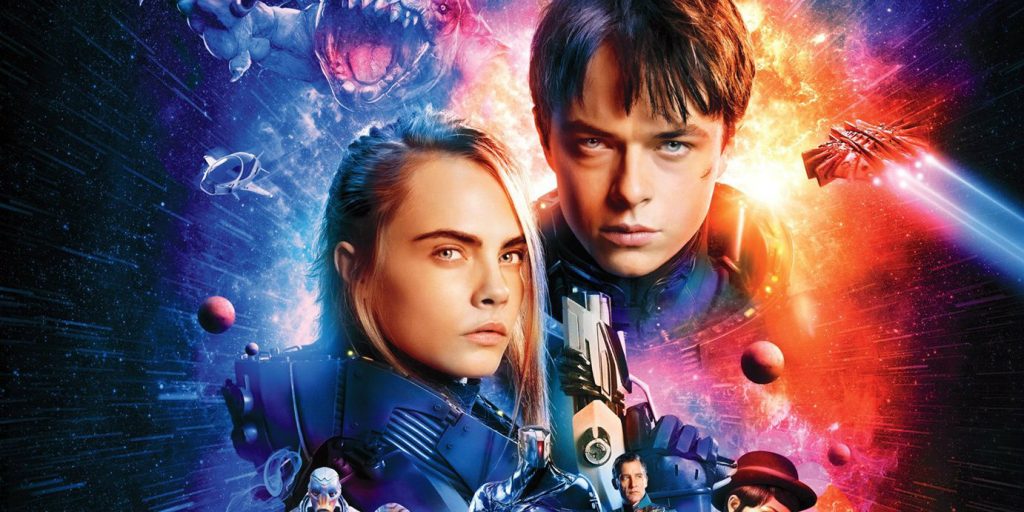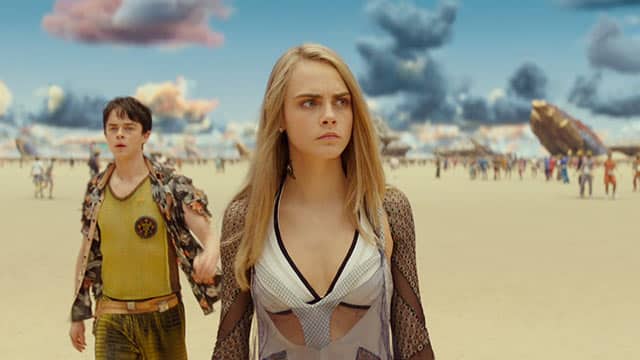Luc Besson is easily one of the industry’s most divisive behind the scenes talent. The French auteur has been a writer, director, and producer for some great films, and is even credited for reviving Liam Neeson’s career with Taken. At the same time, even some of Besson’s most acclaimed work like The Fifth Element has its fans and major detractors.
Twenty years after making that film, Besson is back in his science fiction wheelhouse with Valerian and the City of a Thousand Planets. Based on a graphic novel, the film follows space special operatives Valerian and Laureline who must the uncover a conspiracy behind the loss planet Alpha.
Much of the headlines surrounding this film will focus more on its bleak box office outlook, which after seeing the film is a huge letdown. Its sure to divide audiences, but Valerian and the City of a Thousand Planets is a widely creative and wonderful crafted blockbuster that ranks among the summer’s best.
This film is essentially a high-budgeted independent film, with Besson financing the film through pre-selling it to foreign markets. Not only does Besson deserve credit for fighting to make his vision a reality, but also making a film that is completely separate from the cliches of blockbuster filmmaking.
Visually, this is perhaps the most beautifully visceral film since Avatar. This is a must-see on the big screen, as Besson and his team behind the scenes do an outstanding job of creating a lived in world, filled with bright colors and detailed vistas. There are several jaw dropping shots that encompass the pure scope and beauty of this diverse world.
Besson’s talents are most felt behind the camera, where he interjects his signature quirk. What makes his science fiction worlds so interesting is the mixture of weird comedic elements that truly give the world personality, as Valerian delivers several fun touches throughout. I also appreciate his impressive eye for action, incorporating a mixture of styles and techniques to deliver some eye-popping sequences. The tracking chase sequence alone may be worth the price of admission.
Credit is given to the film’s accomplished cast for delivering some solid turns. Cara Delevinge is wonderfully charismatic here, stealing each scene she’s in with her impressive performance. She turns a fairly rudimentary character trope into something a lot more well-rounded and unique. Dane DeHaan may be slightly miscasted in the role of Valerian, but his wonderful chemistry with Delevinge makes up for that. Their dynamic is the heart and soul of the film, and its surprisingly more effective than the average blockbuster. Supporting turns from Clive Owen, Ethan Hawke, and even Rhiana are also quite good.
Valerian suffers at times though from its massive ambition. The film is about 137 minutes long, which feels a good twenty minutes too long. Luc Besson’s screenplay features a lot of interesting world building, but some of it works better than other times.
It’s a shame that the film never is able to create a story that is anywhere near as compelling as the world it builds. Besson’s screenplay is at its best when its detouring from its main story, which is both a pro and con. The central storyline is very generic and predictable from start to finish, which takes away from a lot of the originality the film’s look.
Valerian and the City of a Thousand Worlds is a true delight, an energetic and wonderfully original blockbuster that has as much charm as it does filmmaking prowess. If you are on the fence, please give this film a chance.


